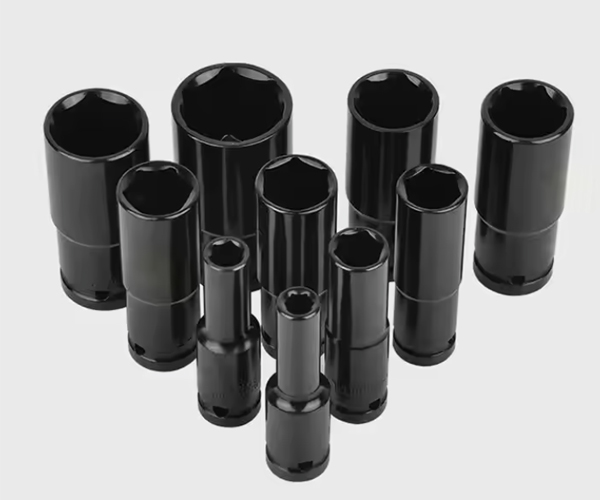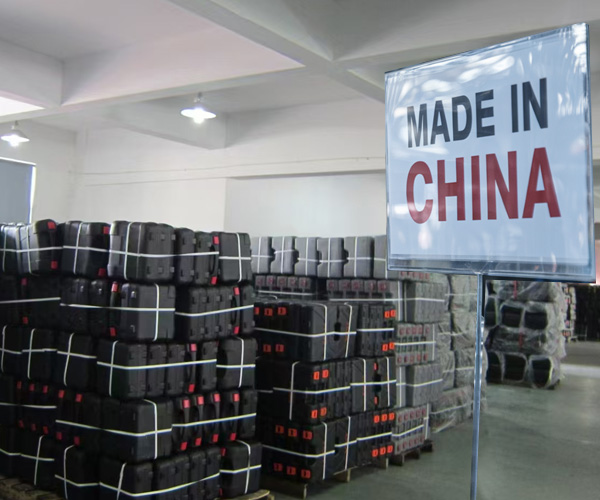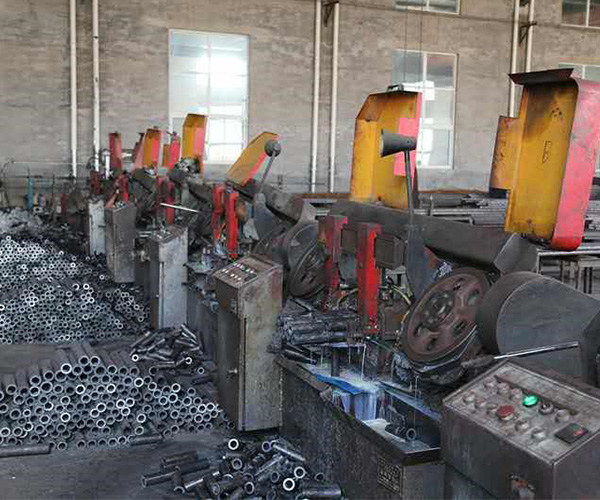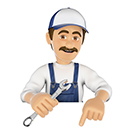INTRODUCTION
Impact sockets play a crucial role in various industries, from automotive repair shops to large-scale manufacturing plants. Yet many buyers struggle to identify truly reliable impact socket manufacturers who deliver consistent quality, maintain reliable supply, and provide customizable options. You’re likely seeking a dependable partner who understands your exact needs, offers stable delivery times, and supports branding opportunities. Choosing the right supplier saves you headaches down the road, reduces equipment failures, and prevents lost sales due to inferior products. You might be wondering, how do you cut through the noise and pinpoint that perfect fit? By following a clear process and focusing on key factors, you’ll discover manufacturers who meet your standards, adapt readily to your requests, and help your business thrive.
What Are Impact Sockets And Why Quality Counts
Impact sockets differ from standard sockets through their thicker walls, stronger materials, and enhanced torque ratings. High-quality options undergo strict testing to handle heavy loads without cracking. If durability fails, end-users lose trust in your brand. This article guides you through each essential step, from clarifying your requirements through to evaluating credentials, ensuring you pick a manufacturer who matches your unique priorities.
UNDERSTANDING YOUR BUSINESS NEEDS BEFORE YOU START
Before diving into potential partners, it’s critical to clarify your own requirements. When you know exactly what your business wants, the entire sourcing process runs smoother. Here’s the deal, if you start searching blindly, you risk picking a manufacturer who can’t meet critical specs, forcing compromises that undermine your brand’s reputation. Consider factors like materials: Many impact sockets feature chrome molybdenum or chrome vanadium steel, each offering distinct performance properties. If your market demands heavy-duty, high-torque tools, ensure your chosen supplier specializes in premium alloys.
Defining Technical Requirements
Think carefully about torque ranges, size selections, and finishes. Are you supplying automotive professionals who need various drive sizes? Are you targeting industrial customers requiring ultra-high torque applications? Understanding these technical details helps you communicate clearly with manufacturers. The more precise your needs, the easier it becomes to select a partner capable of meeting them without cutting corners.
Considering Volume And Customization
You might be asking, how much volume do you plan on purchasing monthly or yearly? Some factories cater to large wholesalers needing thousands of units per order, while others can accommodate smaller batches for niche brands. Decide whether you need custom branding elements like engraved logos or unique color-coded rings. Also consider packaging variations. If you plan for future growth, pick a manufacturer who can scale capacity. By mapping out your vision ahead of time, you strengthen your negotiating position and ensure long-term compatibility.
RESEARCH METHODS: WHERE AND HOW TO FIND POTENTIAL MANUFACTURERS
Once you understand your own needs, it’s time to locate suitable manufacturers. You might be wondering, where do you even begin? The global marketplace offers countless options, but not all are trustworthy. Some might boast high production capacity yet fail to maintain consistent quality. Others might excel at craftsmanship but struggle to communicate effectively across borders. Casting a wide net initially helps you narrow down top contenders.
Online Directories And B2B Platforms
Start with well-known platforms like Alibaba, Global Sources, or ThomasNet. These directories let you search by product type, region, and certification. Read detailed profiles, review supplier ratings, and check how long they’ve been active. Many vendors post product images, specifications, and testimonials. Guess what, these sources provide a convenient starting point, but never rely solely on platform profiles. Confirm details through direct contact and sample requests.
Trade Shows And Industry Events
Attending industry trade fairs is another powerful method. You can handle sample products, assess build quality in person, and speak face-to-face with sales reps or engineers. This interaction reveals a lot about their professionalism, communication style, and adaptability. You may also network with other buyers who share their experiences and offer recommendations. Even if travel feels challenging, consider virtual trade show events or recorded product demos.
Referrals And Industry Contacts
Here’s another angle, ask peers or industry forums for referrals. People who’ve sourced impact sockets before can highlight reputable manufacturers and steer you away from known pitfalls. Utilize professional networks on LinkedIn or specialized tool forums where seasoned buyers discuss sourcing strategies. Don’t shy away from contacting your existing supply chain partners who might introduce you to trustworthy impact socket manufacturers they’ve worked with successfully.
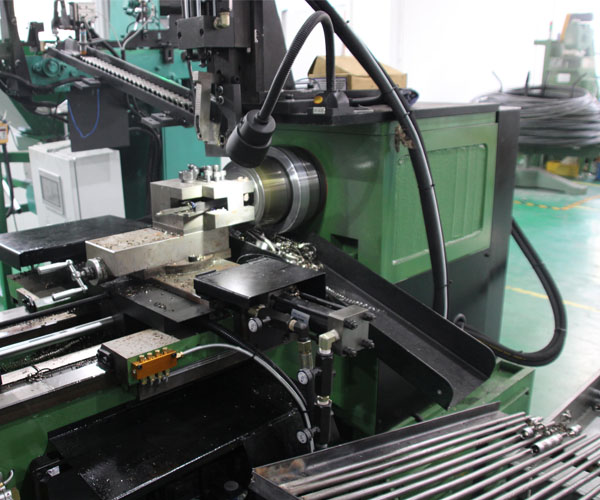
EVALUATING A MANUFACTURER’S QUALITY CONTROL AND CERTIFICATIONS
Finding potential manufacturers marks only the first step. Next, you must assess their quality assurances. You might be wondering, how can I confirm their claims? Look for robust quality management systems, recognized certifications, and transparent testing procedures.
Key Certifications To Look For
Certifications such as ISO 9001 demonstrate adherence to stringent quality management standards. Some manufacturers highlight material certifications for their steel alloys, guaranteeing that their metal composition meets industry requirements. Compliance with ASTM, DIN, or ANSI norms proves their products align with global standards. Here’s the deal, certifications alone won’t ensure perfection, but they do signal a baseline of professionalism and technical competence.
Inspection And Testing Protocols
Ask about their quality checks during production. Do they test hardness, torque capacity, and dimensional accuracy? Reliable manufacturers conduct internal inspections, involve third-party labs if needed, and maintain detailed records. Request documentation from recent batches. Ideally, they’ll share photos or videos of test results, revealing their commitment to consistency. When they can readily explain their quality processes, it reflects their dedication to delivering reliable products.
Sample Evaluations
You might be asking, should you request samples first? Absolutely. Samples offer direct insight into workmanship. Check the finish, strength, and fit. Apply torque if possible, simulate real-world conditions, and note any flaws. Quality samples confirm that their routine production matches their promises. If a supplier resists sending samples or provides low-grade units, consider it a red flag. A top-tier manufacturer welcomes scrutiny, confident their tools exceed your expectations.
ASSESSING MANUFACTURER CAPABILITIES AND EXPERIENCE
Once quality checks pass initial scrutiny, evaluate a manufacturer’s experience and capacity. You might be wondering, why does longevity matter? A company operating for a decade or more likely developed stable processes, supplier networks, and skilled labor. They’re more likely to handle unforeseen challenges like material shortages or sudden volume spikes.
Years In Business And Production Capacity
Established factories with solid track records have weathered market fluctuations. They know how to adjust lead times, manage large orders, and maintain stable materials sourcing. Modern equipment matters too. Updated machinery enhances precision, reduces defects, and increases output. If you plan on scaling over time, choose a manufacturer with room to grow rather than one already at capacity.
Technical Expertise And Engineering Support
Here’s the deal, does the manufacturer employ skilled engineers or technicians who understand complex specifications? This matters if you need custom designs, unique drive sizes, or proprietary hardness levels. A technically proficient factory can translate your requirements into actionable production plans. Ask if they’ve handled similar projects before, or if they provide guidance on improving designs. Partnering with experts who offer solutions rather than excuses streamlines your operations.
Raw Materials And Partnerships
Manufacturers often rely on steel suppliers and forge partners. Knowing their raw material sources can reassure you that the metal’s quality remains consistent. Inquire if they work with reputable mills, employ heat treatments, or apply special coatings. High-quality inputs produce durable tools. By confirming these details, you reduce the risk of surprise material issues later.
CUSTOMIZATION AND OEM SERVICES
Creating a distinctive brand presence means offering something beyond generic products. You might be asking, can manufacturers customize impact sockets to reflect my brand’s style? Many top-tier suppliers welcome OEM requests, tailoring products from color schemes to engraving your logo on each socket.
Brand Customization Options
Adding unique branding elements differentiates you from competitors selling unbranded tools. Engravings, laser-etched markings, or colored rings assist customers in selecting the right size quickly. Custom packaging options, such as branded boxes or pouches, elevate your product’s perceived value. These touches resonate with buyers who appreciate attention to detail.
Material And Design Adjustments
Here’s another angle, perhaps you want a specific alloy grade or thickness. A factory open to design modifications can adapt production lines accordingly. If you cater to a niche sector with special torque requirements, they can fine-tune tools for that environment. Effective customization requires open dialogue, willingness to experiment, and time for sample iterations. Be prepared to invest effort upfront, because well-tailored products pay off with loyal customers.
Timelines For Developing Custom Orders
Customization often lengthens lead times. Expect extra weeks for prototyping, adjustments, and final approval. Communicate deadlines early, ensuring the factory aligns production schedules. You might be wondering, is it worth the wait? Yes. Customized impact sockets set your brand apart, fostering brand recognition and customer loyalty. By choosing a flexible, OEM-friendly manufacturer, you transform ordinary tools into signature offerings that define your market presence.
COMMUNICATION AND RESPONSIVENESS
Finding a capable factory matters little if communication breaks down. You might be wondering, why is responsiveness so crucial? Smooth, transparent communication prevents misunderstandings, ensures prompt responses to urgent queries, and simplifies negotiations. When time zones and language differences arise, a manufacturer’s ability to communicate clearly becomes a key factor.
Language And Time Zone Considerations
If you’re sourcing globally, your supplier might operate on opposite schedules. Reliable manufacturers assign dedicated account managers who adapt to your time zone or provide round-the-clock support. English fluency or multilingual staff significantly reduces friction. If language barriers persist, consider employing a translator. Guess what, a factory willing to bridge communication gaps sets the stage for smooth collaboration.
Transparency In Negotiations
Price, MOQ, lead times—these all must be spelled out clearly. An honest supplier explains their costing structure, material expenses, and potential bottlenecks. Here’s the deal, vague or evasive responses signal trouble. A trustworthy partner acknowledges challenges and proposes workable solutions. If they’re willing to break down quotes, discuss payment terms, and outline product warranties, you can engage confidently.
Dedicated Account Managers Or Teams
Ideally, you’ll have one primary contact who knows your account inside-out, tracks order progress, and coordinates with production teams. This single point of contact simplifies problem-solving. You might be asking, what if issues arise? Quick responses and proactive measures build trust. A manufacturer that treats you as a valued client—rather than just another buyer—encourages long-term partnerships.
MINIMUM ORDER QUANTITIES (MOQS) AND PRICING STRUCTURE
Commercial viability hinges on balancing costs and order volumes. You might be wondering, how can MOQs shape your sourcing strategy? Many factories set minimum thresholds to ensure profitable production runs. Negotiating MOQs becomes crucial if you’re a startup testing small batches or a seasoned wholesaler seeking volume discounts.
Balancing MOQ Requirements
If the MOQ seems too high, inquire about reduced initial runs at a slightly higher unit cost. Over time, as trust builds, you can increase volumes for better pricing. Conversely, if you expect rapid growth, embrace higher MOQs early to secure lower prices. You might be asking, is there a sweet spot? Often, it involves transparent negotiations, understanding the factory’s production constraints, and aligning expectations.
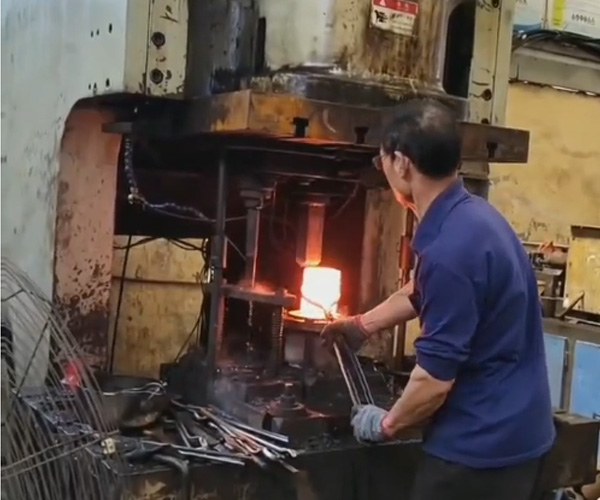
Cost Breakdown And Payment Terms
Reputable manufacturers provide detailed quotes listing per-unit costs, tooling fees, packaging charges, and shipping expenses. This clarity helps you assess total landed costs accurately. Discuss payment terms: some accept letters of credit, partial deposits, or flexible net terms. Here’s another angle, compare offers from multiple suppliers to confirm you’re getting fair market rates, but remember that rock-bottom prices may compromise quality.
Identifying Hidden Costs
Never overlook indirect expenses: custom packaging, third-party inspections, or special certifications add up. Factor in freight charges, insurance premiums, and customs duties. A manufacturer transparent about additional costs fosters trust. By understanding the full financial picture, you avoid unpleasant surprises and make informed decisions that protect your bottom line.
SHIPPING, LEAD TIMES, AND LOGISTICS SUPPORT
Reliable supply chains hinge on predictable lead times and efficient logistics. You might be wondering, what if production delays derail your schedules? Late shipments lead to stockouts, unhappy customers, and lost sales. Selecting a manufacturer adept at handling global shipping and offering logistical assistance safeguards your business’s reputation.
Estimated Production And Delivery Timeframes
Ask how long typical production runs take under normal conditions. Consider seasonal holidays in the manufacturer’s region that might extend lead times. Guess what, being aware of possible delays allows you to build buffer stock, ensuring continuity. Some factories expedite production for urgent orders, although you might pay a premium for this flexibility.
Freight And Logistics Partnerships
Does the factory partner with reputable freight forwarders or shipping companies? Strong logistics networks simplify customs clearance, reduce transit times, and minimize damage risks. Inquire about their experience handling complex shipping routes or consolidated cargo. If they manage documentation accurately, including packing lists and certificates of origin, you avoid customs holdups.
Inventory Management And Warehousing
You might be asking, can they store finished products until you’re ready to receive them? Some suppliers offer warehousing or vendor-managed inventory solutions, especially for established clients. This helps you manage space constraints, respond quickly to demand spikes, and maintain steady supply without tying up capital in excess stock. A forward-thinking manufacturer addresses these needs, providing an edge in fast-paced markets.
AFTER-SALES SERVICE, WARRANTY, AND RETURNS POLICY
The relationship doesn’t end once the shipment leaves the factory. You might be wondering, what if defects arise or a batch fails expectations? A robust after-sales policy differentiates a short-term vendor from a long-term partner. Look for factories that stand behind their products with fair warranties and hassle-free returns.
Warranty Agreements
A reasonable warranty signals that the manufacturer trusts its quality. Understand the terms: duration, conditions, and what types of defects qualify for repairs or replacements. Here’s the deal, a factory confident in its materials and craftsmanship readily extends coverage. This assurance empowers you to promise quality to your customers, strengthening brand credibility.
Return And Exchange Procedures
If issues appear, how quickly does the supplier respond? A smooth returns process involves clear instructions, minimal red tape, and prompt remedial action. Some suppliers provide credit, while others replace faulty units. Evaluate their responsiveness by testing hypothetical scenarios. If they’re evasive or uncooperative, consider looking elsewhere.
Ongoing Product Support
You might be asking, what happens if you need technical guidance or maintenance tips? Good manufacturers offer support, from usage advice to troubleshooting issues. They may share best practices, training videos, or direct communication with product specialists. This proactive approach elevates trust and fosters loyalty, encouraging you to maintain a long-lasting partnership.
VERIFYING MANUFACTURER CREDIBILITY AND REFERENCES
Words and promises mean little without proof. You might be wondering, how do I confirm a supplier’s credibility beyond their website claims? Third-party validation, references, and external audits help you verify their track record, prevent scams, and ensure long-term dependability.
Asking For Client References
Ask prospective factories to provide references from existing clients. Speak with these buyers directly. Guess what, their firsthand accounts reveal whether the supplier consistently meets deadlines, maintains quality, and communicates openly. Real feedback trumps polished marketing pitches, offering genuine insight into daily operations.
Third-Party Verification Services
Engage independent auditors who inspect factory conditions, verify licenses, and assess compliance with labor standards. Certification bodies or accredited inspectors can confirm that the facility meets regulatory norms. This extra step is especially vital if you plan large, ongoing purchases where reliability matters immensely.
Online Business Registrations And Licenses
You might be asking, can I confirm their legitimacy easily? Check government registries, business licenses, or certifications posted on official websites. Membership in industry associations or trade bodies often reflects serious commitment. Reliable suppliers operate transparently, welcoming due diligence instead of shying away from scrutiny.
BUILDING LONG-TERM RELATIONSHIPS WITH MANUFACTURERS
One successful transaction is good, but a stable partnership multiplies benefits. You might be wondering, why invest time cultivating long-term ties? Over time, both parties understand each other’s workflows, expectations, and communication styles, cutting down on errors and accelerating problem-solving.
Beyond One-Time Orders
Building trust leads to better terms, priority production slots, and flexible MOQs. If unforeseen challenges arise, established relationships help find quick resolutions. Here’s another angle, partners who genuinely value your business collaborate on improving product designs, exploring new materials, or introducing innovative finishing techniques. Your growth becomes their growth.
Quality Improvement Collaborations
Close cooperation encourages ongoing feedback loops. If end-users demand a harder alloy or improved coating, the factory who knows your brand can implement changes swiftly. This responsiveness enhances product quality steadily. Over time, your brand reputation thrives as customers realize your tools consistently meet their evolving needs.
Scaling With A Trusted Partner
As you expand into new markets or distribution channels, a reliable manufacturer adapts alongside you. They anticipate increased volume, update packaging for different regions, or guide you through unfamiliar regulatory frameworks. You might be wondering, is it worth nurturing this partnership? Absolutely. Long-term alliances reduce uncertainty, foster stability, and ensure your brand remains competitive worldwide.
BALANCING COST, QUALITY, AND RELIABILITY
No matter how good a deal appears, never sacrifice quality for lower prices. Here’s the deal, cheap tools that fail cost more in the long run due to returns, lost customers, and damage to brand reputation. Balancing cost, quality, and reliability ensures maximum value and sustainable success.
Value Over Price Alone
Instead of fixating solely on the unit price, consider total cost of ownership. Durable impact sockets last longer, reduce replacements, and enhance user satisfaction. You might be asking, how do I quantify this? Compare warranties, after-sales support, and user feedback from different suppliers. Paying slightly more upfront often yields superior returns.
Comparing Multiple Suppliers
Shortlist a few reliable candidates and compare their offerings. Factor in everything: quality assurance, shipping speed, communication style, and customization. When you weigh these elements together, cost differences appear in context. Guess what, a supplier who charges a bit extra but consistently delivers exceptional products on time might be worth the premium.
Making The Final Decision
Once you’ve done your research, inspected samples, and verified references, trust your instincts. If a manufacturer meets technical specs, communicates openly, and matches your budget goals, you’ve found a winner. Proceed confidently, knowing you’ve minimized risks and chosen a partner likely to help your business thrive.
COMMON MISTAKES TO AVOID WHEN CHOOSING A MANUFACTURER
Navigating supplier selection can feel overwhelming. You might be wondering, what common pitfalls derail buyers? Avoiding these mistakes helps you secure better outcomes and sidestep regrets.
Failing To Request Samples
Ordering large volumes without testing samples invites disaster. You risk receiving tools that don’t fit specifications or fail under stress. Always test before committing significant resources. Here’s another angle, never rely solely on glossy product photos or manufacturer claims.
Overlooking Certifications And Quality Checks
Ignoring formal certifications might save time initially, but sets you up for disappointment later. Confirm compliance with recognized standards to ensure consistent quality. Skipping this step can lead to costly returns and reputation damage.
Rushing The Selection Process
You might be asking, does haste really hurt? Yes. Rushed decisions overlook details like communication responsiveness or after-sales guarantees. Take time to evaluate candidates thoroughly. A slower, systematic approach pays off with long-term stability.
Ignoring Cultural And Language Barriers
If you don’t address language differences, misunderstandings arise. Poor communication leads to wrong specs, delayed deliveries, and frustration. Clarifying expectations early and establishing good communication channels saves headaches down the road.
CONCLUSION AND NEXT STEPS
You’ve learned how to find the best impact socket manufacturers, from clarifying your own requirements to verifying supplier credentials, testing samples, and building lasting relationships. By focusing on quality, customization, communication, and robust after-sales support, you reduce risks and gain a reliable partner who helps your business flourish. You might be wondering, what’s next? Begin by shortlisting potential manufacturers, contacting them for samples and quotes, and then carefully evaluating their responses. Once you confirm a good fit, place an initial order and monitor performance. Over time, trust deepens, costs stabilize, and product lines expand. Through steady collaboration, you secure consistent supply, exceed customer expectations, and enhance your brand’s reputation worldwide.

FREQUENTLY ASKED QUESTIONS (FAQ)
Q: How many samples should I request before committing to large orders?
Request at least a few samples that represent different product types or drive sizes you plan to sell. Evaluate their finish, strength, and fit under real-world conditions. More samples improve your confidence in consistency and help you spot any manufacturing inconsistencies before scaling up.
Q: What if the manufacturer’s MOQ feels too high for my startup?
Discuss your concerns openly. Some factories accept smaller initial orders at slightly higher prices. Over time, as trust builds and order volumes increase, they may lower MOQs. Negotiating upfront can help you find a workable compromise that meets your budget and growth goals.
Q: How can I verify a manufacturer’s certifications are legitimate?
Check certification details against official registrar databases. Reputable certification bodies maintain online directories where you can verify certificate numbers. You can also rely on third-party auditors or reputable trade associations who confirm authenticity. If the supplier hesitates to provide proof, consider it a warning sign.
Q: Can I rely solely on one manufacturer for all my needs?
Relying on a single supplier simplifies logistics and fosters deeper relationships, but it also increases risk if production issues or supply shortages arise. Many businesses use multiple manufacturers as backups or to diversify product ranges. Over time, you might develop a primary partner and keep alternatives on standby.
Q: How do I handle communication challenges if we speak different languages?
Use email templates and simple language. Employ translation tools or professional translators if needed. Some manufacturers provide bilingual account managers who simplify interactions. Video calls, images, and diagrams also clarify complex requirements. Consistent effort in communication creates a smoother sourcing experience and prevents costly mistakes.


